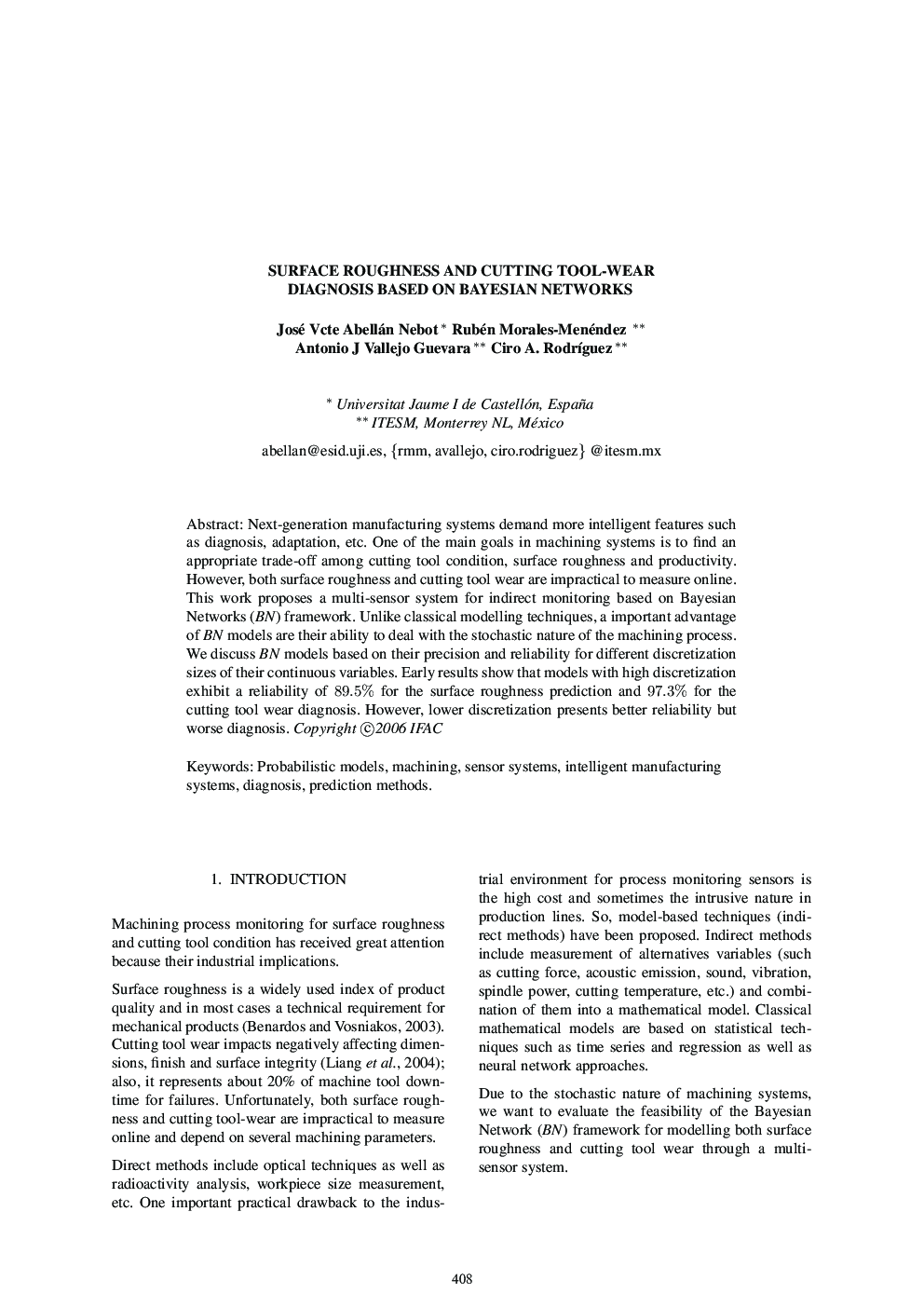| Article ID | Journal | Published Year | Pages | File Type |
|---|---|---|---|---|
| 722371 | IFAC Proceedings Volumes | 2006 | 6 Pages |
Next-generation manufacturing systems demand more intelligent features such as diagnosis, adaptation, etc. One of the main goals in machining systems is to find an appropriate trade-off among cutting tool condition, surface roughness and productivity. However, both surface roughness and cutting tool wear are impractical to measure online. This work proposes a multi-sensor system for indirect monitoring based on Bayesian Networks (BN) framework. Unlike classical modelling techniques, a important advantage of BN models are their ability to deal with the stochastic nature of the machining process. We discuss BN models based on their precision and reliability for different discretization sizes of their continuous variables. Early results show that models with high discretization exhibit a reliability of 89.5% for the surface roughness prediction and 97.3% for the cutting tool wear diagnosis. However, lower discretization presents better reliability but worse diagnosis.
